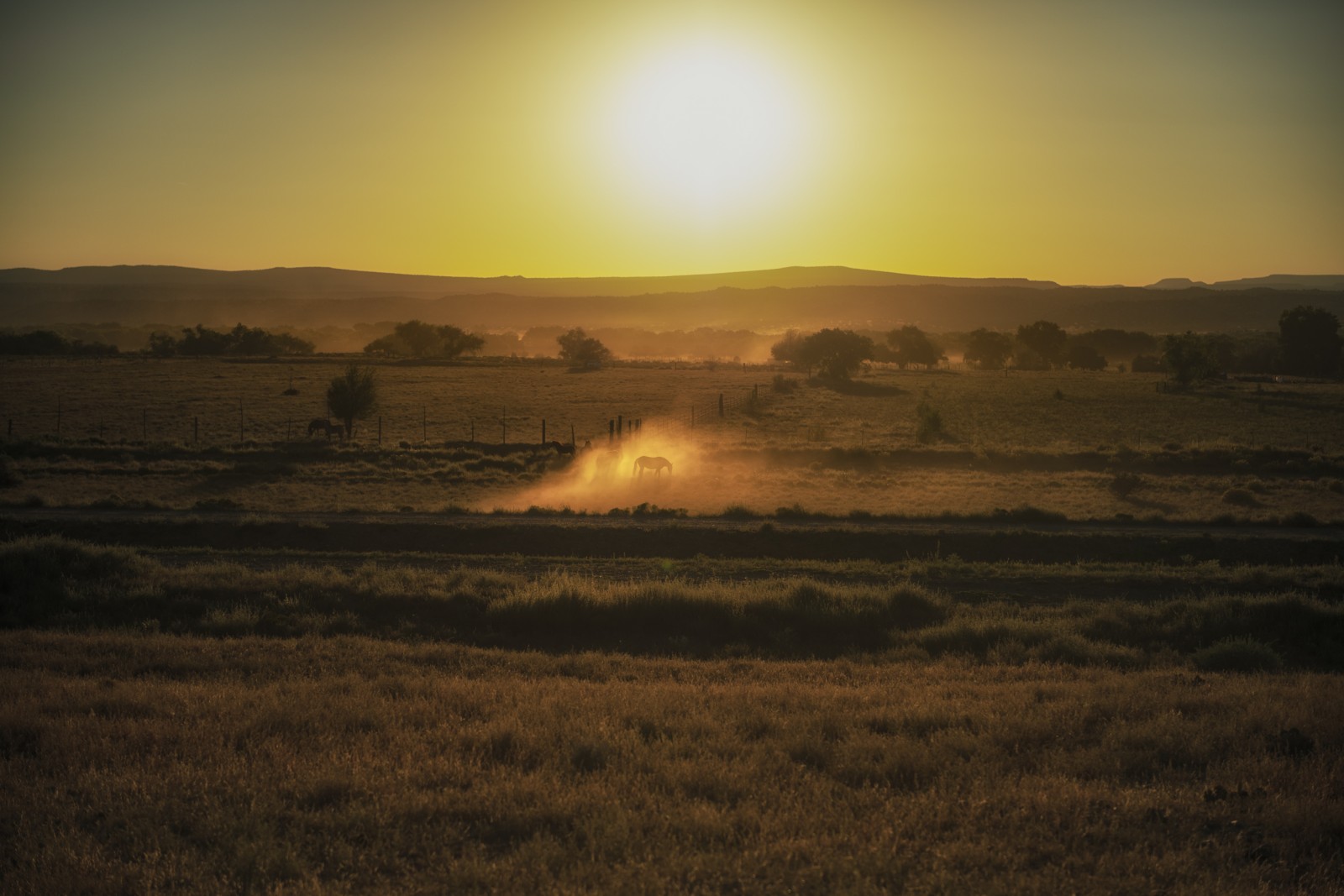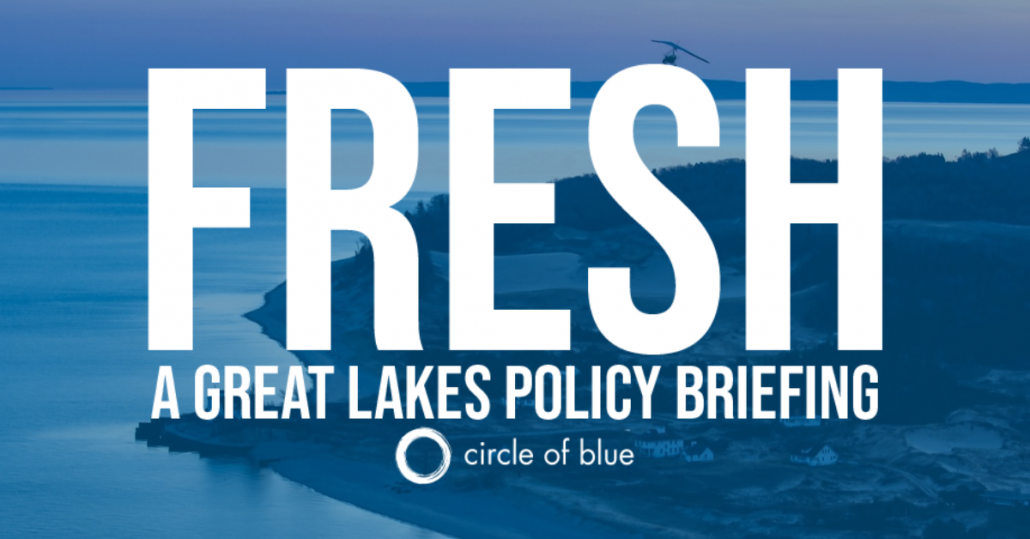The Stream, February 4, 2025: Trump Censors Climate Change From Federal Websites; Bulgaria-Greece Water Deal Expiration Sows Concerns
Horses graze on the Rio Grande flood plain in New Mexico. Photo © Pablo Unzueta/Circle of Blue
YOUR GLOBAL RUNDOWN
- U.S. President Donald Trump has moved to censor the climate crisis from federal web pages, with environmental assessments and climate adaptation reports disappearing from public sites.
- New research finds that Greenland’s ice sheet is cracking “more rapidly than ever” as it remains on track to increase sea levels by one meter by this century’s end.
- A drought in Argentina has the country on track for below-average production of soy and corn, both key crops.
- Following the expiration of a decades-old water deal with Bulgaria, farmers in Greece face an uncertain growing season.
— Christian Thorsberg, Interim Stream Editor
Fresh: From the Great Lakes Region
Urgency for Rapidan Dam Removal: Officials and federal workers in Blue Earth County, Minnesota are feeling the pressure to complete “several key infrastructure projects,” including the removal of the Rapidan Dam, which was breached by floodwaters last June, and the restoration of a bridge which was damaged as a result. Time is not an ally, Minnesota Public Radio reports, as anticipated spring flooding and FEMA’s uncertain future, along with lengthy processes to receive necessary environmental permits, are posing big challenges for hitting short-term timelines.
Bridge Michigan, Circle of Blue, Great Lakes Now at Detroit Public Television, Michigan Public and The Narwhal work together to report on the most pressing threats to the Great Lakes region’s water. This independent journalism is supported by the Charles Stewart Mott Foundation. Find all the work here.
- Toronto-area national park to grow as feds scrap airport plan — The Narwhal
- What furor over drab Gaylord land says about Michigan’s energy transition — Bridge Michigan
- How Ducks Unlimited Became Heroes of the Conservation Movement — Great Lakes Now
- “A crisis”: Lake whitefish survey paints an even more dire picture — Michigan Public
The Lead
Employees in the U.S. Department of Agriculture, which manages the U.S. Forest Service, received emails last Friday instructing them to “identify and archive or unpublish any landing pages focused on climate change,” including “the USFS Climate Change Resource Center, the Climate Action Tracker and the National Roadmap for Responding to Climate Change,” The Guardian reports. These resources have since been lost by the farmers, firefighters, environmental decision-makers, and community leaders who depend on the information for their work and the safety of habitats and homes.
The U.S. Forest Service’s “Sustainability and Climate” landing page and data dashboard also disappeared, including two web pages which described “how climate change is affecting the nation’s 193 million acres of federally managed forests and grasslands,” the Washington Post reports.
Also among the deletions are the National Climate Resilience Framework assessment, which stated that data collection “should be focused on enhancing information and services in geographies where climate data are sparse and climate-related vulnerabilities are high (e.g., Alaska, Hawaii, U.S. territories),” and that the government is “supporting relocation activities for 14 rural Alaskan villages and Tribes through the Natural Resource Conservation Service Watershed and Flood Prevention Operations Program,” the Juneau Empire reports.
Across multiple agencies, the phrase “climate change” has been replaced with “climate resilience,” which is less suggestive of the root causes of changing climate patterns. It remains unclear which web pages will continue to disappear over the coming days.
Recent WaterNews from Circle of Blue
- At Phoenix’s Far Edge, a Housing Boom Grasps for Water — More than 1 million people could pour into western Maricopa County in the coming decades — if housing developers can secure the water.
- Opinion: Trump’s “Thrilling New Era” Is a Gas — More carbon means powerful storms and floods, worse droughts and wildfires lie ahead.
This Week’s Top Water Stories, Told In Numbers
14
The number of millimeters the sea level has risen in Greenland since 1992, a direct consequence of melting ice, The Guardian reports. Now, new research published in the journal Nature suggests that Greenland’s ice sheet — the second-largest body of ice in the world — is “cracking more rapidly than ever before as a response to climate breakdown.” By 2100, the ice sheet’s melting is on track to increase sea levels by about one meter, and 10 meters by 2300.
10 million tons
The projected decrease in both soy and corn harvests in Argentina this year, compared to 2024, amidst ongoing dry and hot conditions in South America, Reuters reports. Argentina is the world’s leading soy oil exporter and the third-largest corn producer, though a month-long drought has shaped a grim economic outlook for farmers.
On the Radar
Farmers in Greece — which last year experienced both its warmest summer and winter on record — are approaching the new growing season with trepidation following the recent expiration of a water-sharing deal with Bulgaria, Reuters reports. Since the agreement was brokered in 1964, fresh water — about 186 million cubic meters of water — originating from Bulgaria’s mountain ranges made its way into Greece’s Evros plain via the Arda River from May through September, sustaining generations of growers. But this water-sharing plan expired last July, and has yet to be renewed as Bulgaria considers its own water future. In a statement shared with Reuters, Bulgaria’s agricultural ministry said: “It is essential that Bulgaria first and foremost meets its own national water needs … and thereafter the needs of neighbouring countries.”
49th State Focus: Arctic Groundwater Is Releasing Massive Amounts of Carbon Into Oceans, Study Finds
Supra-Permafrost Aquifers: A new study recently published in the journal Geophysical Research Letters suggests that fresh groundwater in northern Alaska is releasing an estimated 230 tons of carbon — “on par with what free-flowing rivers in the area release during summer months” — and large amounts of nitrogen into the Beaufort Sea each day. This significant carbon and nitrogen flux stems from the surprisingly large volume of water discharging into the sea, which researchers attribute in large part to melting ice and permafrost on the Arctic coast. The trend could have large ramifications for increased ocean acidification and the turning of marine waters into a carbon source.
Christian Thorsberg is an environmental writer from Chicago. He is passionate about climate and cultural phenomena that often appear slow or invisible, and he examines these themes in his journalism, poetry, and fiction.










Leave a Reply
Want to join the discussion?Feel free to contribute!